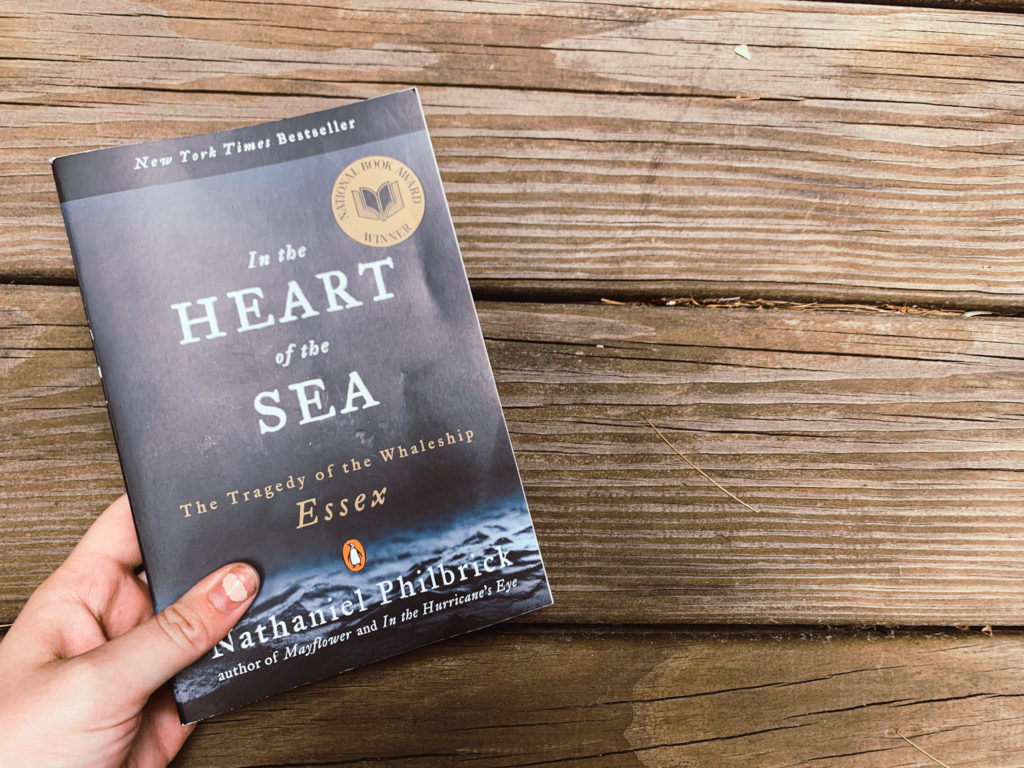Our Big Read 2020 program may be over but the ideas and insights presented and discussed in our program are still floating around and shaping the way the readers along the Lakeshore are thinking about the world. We’re starting a series of blog posts written by various community members about some of the things they learned (and are still thinking about) from our recent Big Read events.
In the paragraphs below, Jael Stilwell, Art Education major at Hope College reflects on what she learned from watching Western Seminary‘s “Ethics Aboard the Essex” event led by Dr. Daniel Flores and Dr. David Stubbs. Her reflections speak to the ways that Dr. Stubbs’ comments and insights can be applied to a myriad of contexts. If you missed this event, it’s not too late! It’s available for viewing on our Big Read YouTube channel – you can access it here.
Jael writes,
Dr Stubbs, during his event “Ethics Aboard the Essex” discussed the ideas of the chaos of the sea and the theological implications of a chaotic sea. During my senior year of high school, I took one class at Holland Christian High School called Discipleship. In Discipleship, I learned about God’s promises to the Israelites in the Old Testament of the Bible and how these promises connect to God’s promise of Jesus and his life on earth in the new testament. In Discipleship, we discussed the Hebrew word for the chaos, formlessness, and void in Genesis 1 in references to the dwelling place of the spirit before the creation of the earth. The word is tohu va vohu, meaning formless, empty, and void. While this was not necessarily something that I learned, this was a connection I was able to make between what Dr. Stubbs was discussing in regards to human’s ideas of the sea and the Hebrew meaning for the words discussed.
Dr. Stubbs also taught me that Nathanial Philbrick, the author of In the Heart of the Sea, was a sailor. Along with this, I learned that sailing is a great hobby and skill to develop as an individual. I could perhaps see myself enjoying sailing, although I know nothing about sailing and have not stepped foot on a sailboat once in my life. I do know that I love the water because I used to be a swimmer, and I love the outdoors, so perhaps I could enjoy sailing if I tried it.
This event also taught me the Nantucketer Quaker disconnect between their religious and moral beliefs and economic practices. The Quakers were pacifists and did not believe in killing other humans, but they did believe in killing whales, almost in a savage way, as was stated throughout the journey of the sailors. Dr. Stubbs discussed this interesting phenomenon that the killing of others was considered very savage and inhumane while seeking out and killing whales was one of the biggest economic prosperities of Nantucket.
The culture and experiences of whaling and how it formed and shaped the people of Nantucket reminds me of what we’ve learned in Education classes about sociocultural theory and how each of our students have different backgrounds and differences in beliefs and culture. As a future teacher, it is imperative that I see each and every one of my students as unique individuals who each have a unique story to tell. I want to learn what shapes and forms my students in order to best serve them as individual students and individual learners.
Another lesson learned for me was how the captain of the Essex, who was an authoritarian figure and leader of the boat, practiced a democratic act by discussing what to do with those beneath him on the boat. This is similar to the role of a teacher in the classroom. While the teacher is in clear command of the classroom and leads the classroom in learning, often it is the role of the teacher to lead a democratic classroom by asking students to share their opinions. In ED 287 (Classroom Management) this semester, we learned about developing classroom expectations with your students. The best way to establish classroom expectations is having everybody form them, and then post the ones that everybody agrees upon.
